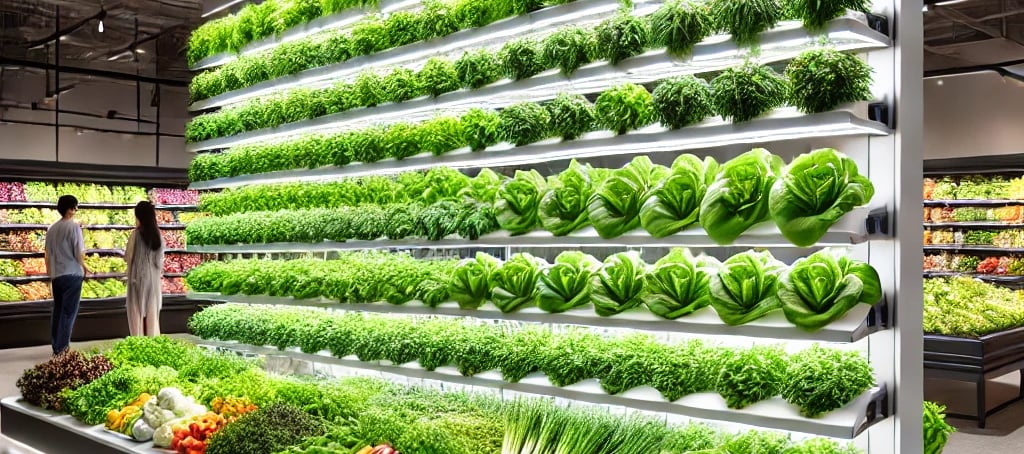New Horizon, Application of Vertical Farming inside Supermarkets
1 min read


3 Reasons to Integrate Vertical Farming Systems in Supermarkets and Their Global Applications
Vertical farming is transforming the retail landscape, particularly in supermarkets, where fresh, sustainable, and locally grown produce is becoming a priority. This innovative technology offers numerous advantages, positioning supermarkets as leaders in sustainable food systems. Here are three key reasons to integrate vertical farming systems in supermarkets and examples of their global adoption.
1. Freshness and Quality On-Site
Vertical farming enables supermarkets to grow produce directly in-store, ensuring unparalleled freshness. Leafy greens, herbs, and even fruits can be harvested at peak ripeness, delivering superior taste and nutritional value. This practice reduces food miles, minimizes spoilage, and ensures consistent product quality for customers.
2. Sustainability and Environmental Impact
Vertical farms use up to 90% less water and significantly less land than traditional farming. By integrating these systems, supermarkets can actively reduce their carbon footprint while offering environmentally conscious produce. Indoor farming eliminates the need for pesticides, aligning with consumer demand for chemical-free and sustainable options.
3. Customer Engagement and Differentiation
In-store vertical farms create a unique shopping experience, boosting customer engagement and brand loyalty. Shoppers are drawn to the transparency of seeing their produce grown locally. This technology also positions supermarkets as innovators, distinguishing them from competitors in a highly competitive market.
Where Vertical Farming is Already Making an Impact
Globally, several major supermarket chains have adopted vertical farming to enhance their offerings:
Edeka (Germany): Collaborates with Infarm to grow fresh herbs and greens directly in stores.
Kroger (USA): Partners with 80 Acres Farms to supply vertically farmed produce.
Marks & Spencer (UK): Utilizes in-store hydroponic systems for fresh produce.
Carrefour (France): Implements indoor farming solutions to promote sustainability.
Aeon (Japan): Operates in-store farms to grow pesticide-free vegetables.
Supermarkets adopting vertical farming systems not only reduce their environmental footprint but also redefine customer expectations for fresh produce. Interested in implementing vertical farming in your supermarket? Discover advanced cultivation solutions at Farmautomation.it
